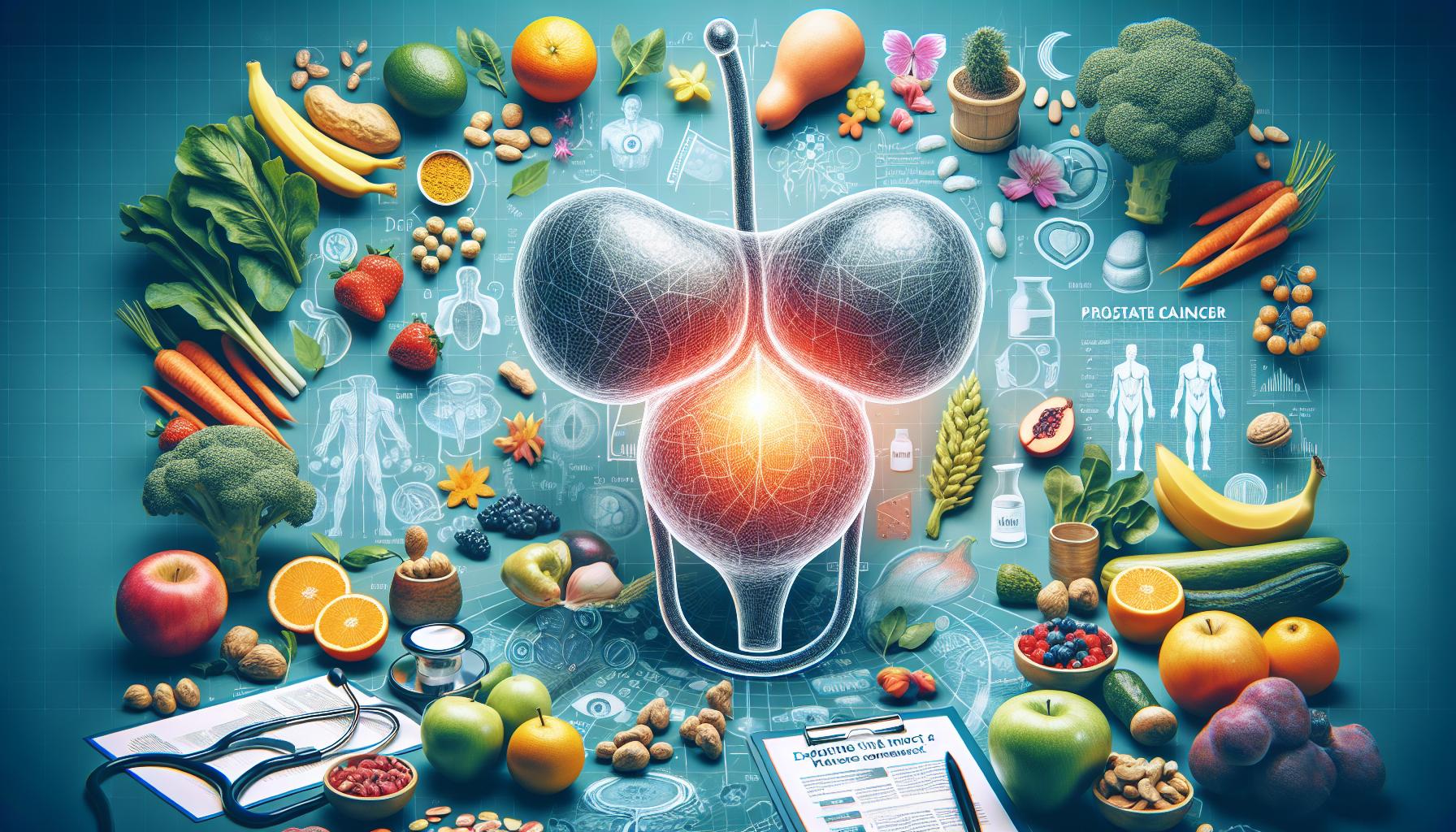Introduction
Can diet impact the onset and progression of prostate cancer? It’s a question that has been pondered upon by many a health-conscious individual. To put it concisely, the answer leans towards yes. Dietary habits can indeed influence the risk of developing prostate cancer to a certain extent. Many facets to the relationship between diet and prostate cancer, from the impact of specific nutrients to wider lifestyle implications will be explored in detail in this article.
The Dietary Link
One cannot discuss the diet and prostate cancer connection without understanding how certain foods may have a say in this dangerous dance of disease. High-fat diets, particularly those rich in animal fats, are often cited as potential accelerators of prostate cancer. What’s more, processed foods and those high in refined sugars might equally share the blame.
Fatty Foes
The western-style diet loaded with fatty meats and dairy products may pose a risk. Consuming such foods can lead to obesity, which in itself is a significant risk factor for prostate cancer.
Protein and Prostate Cancer
Protein is another part of the diet-prostate cancer puzzle, but it’s not as straightforward as one might think. While red and processed meats are associated with an increased risk of prostate cancer, other protein sources such as fish and poultry have been linked with a lower risk.
Beneficial Protein Sources
Fish, particularly those rich in omega-3 fatty acids like salmon and mackerel, might help to reduce the risk. Similarly, plant-based proteins like beans and lentils can be a healthy, cancer-combatting addition to your diet.
Veggies and Vitamins
It’s not just about what you should avoid; certain foods may serve as protective players in your dietary defense against this deadly disease. Fruits, vegetables, and certain vitamins could hold the key to preventing prostate cancer.
Power of Plants
Green leafy vegetables, berries, tomatoes – these are all nutrient powerhouses thought to contain cancer-fighting properties. research strongly suggests that diet high in plant-based foods can provide protective benefits against prostate cancer.
Conclusion
In the context of diet and prostate cancer, balance is key. Leading a healthy lifestyle, replete with appropriate exercise and a balanced diet rich in vegetables, fruits, and lean proteins may well offer the best line of defense against prostate cancer.
Frequently Asked Questions
1. Is there a specific diet to prevent prostate cancer?
While there isn’t a specific diet labeled as ’anti-prostate cancer’, a healthy diet rich in fruits, vegetables, legumes, lean proteins, and the proper balance of fats is recommended for overall health which can reduce the risk of many forms of cancer, including prostate.
2. Do dairy products cause prostate cancer?
There is some evidence which suggests that excessive consumption of dairy products may increase the risk of prostate cancer. However, moderate consumption is generally safe.
3. Can a vegetarian diet lower the risk of prostate cancer?
A diet rich in fruits, vegetables, and whole grains – commonly found in a vegetarian diet – may offer protective benefits against prostate cancer.
4. How does obesity impact prostate cancer?
For overweight and obese men, the risk of developing aggressive prostate cancer is higher. Moreover, they may also encounter difficulties in diagnosing and treating prostate cancer.
5. Would increasing my intake of vegetables and fruits lower my risk?
While a direct cause-and-effect relationship hasn’t been positively established, a diet rich in fruits and vegetables has been associated with a lower risk of prostate cancer. It would certainly help in maintaining overall health, which is beneficial in preventing numerous diseases, not just cancer.


